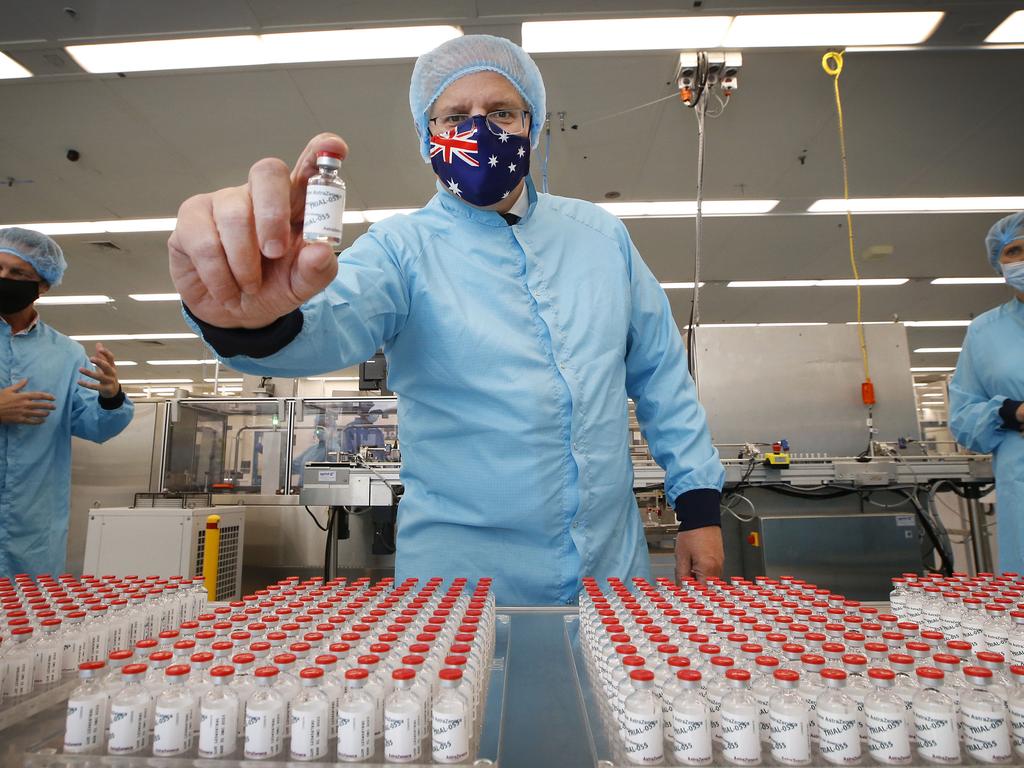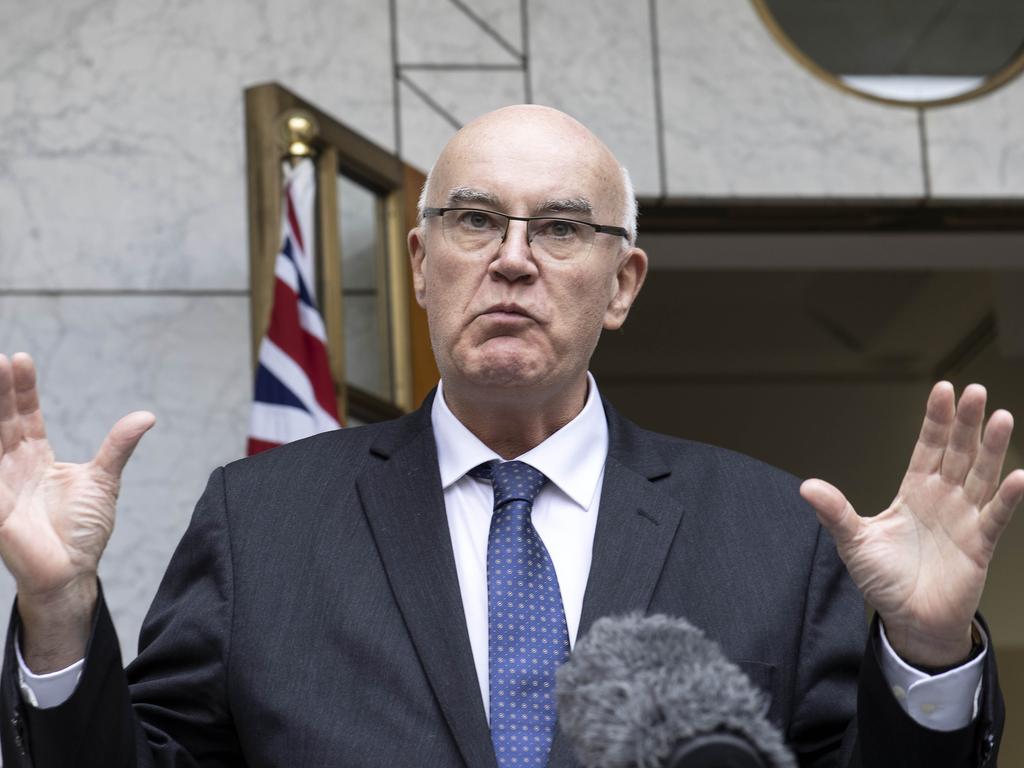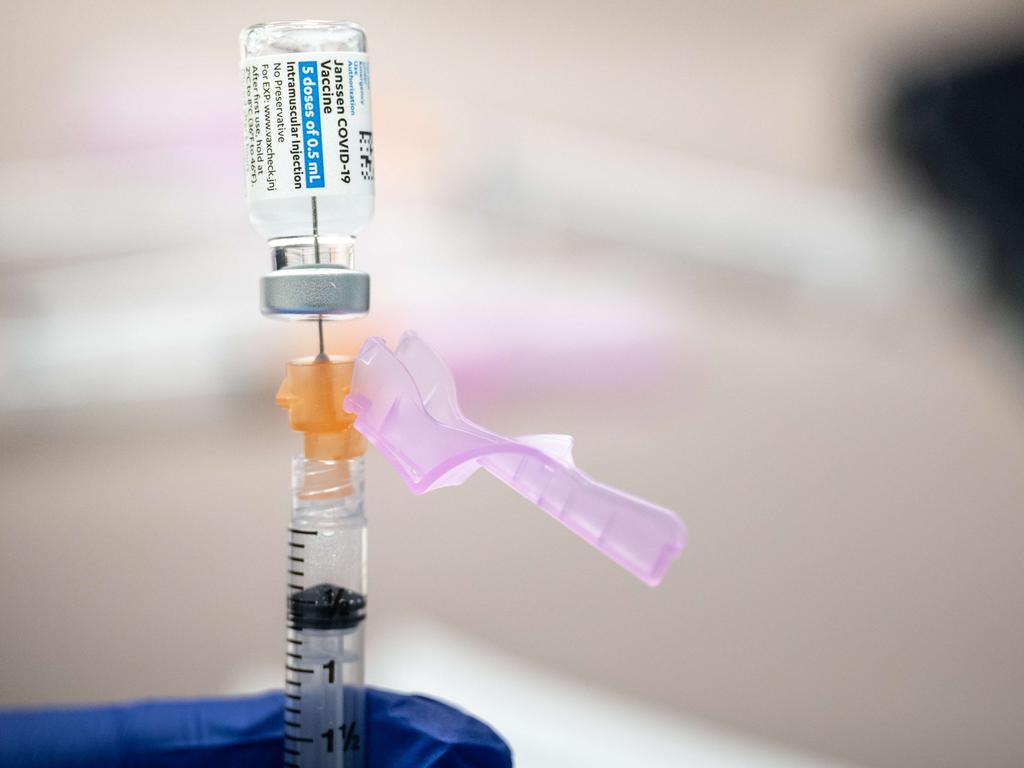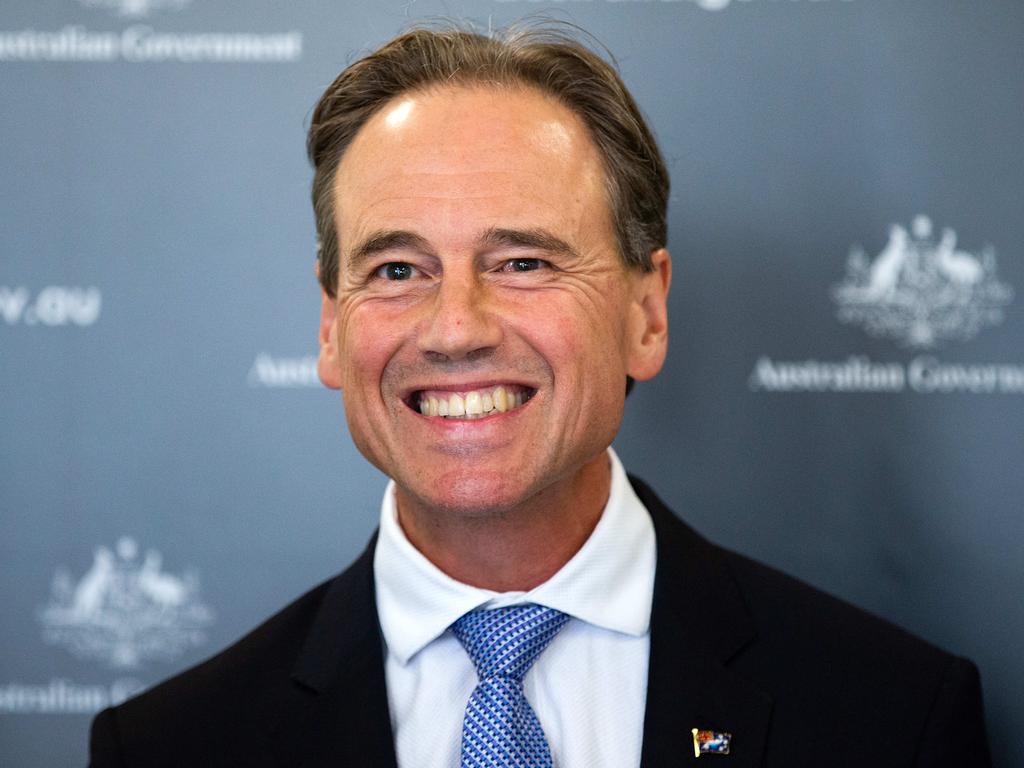Government confirms 19 allergic reactions, plays down reports of online delays
Nineteen allergic reactions to vaccines have been reported across Australia, but authorities insist the development is nothing unusual.

More than a dozen allergic reactions to COVID-19 vaccines have been reported across the country since the rollout began, but Australians are being reassured no evidence links the AstraZeneca vaccine to blood clots.
Federal Health Minister Greg Hunt revealed 203,557 doses had been administered across Australia by Tuesday, including 44,000 residents across more than 500 aged care homes.
Four patients in Queensland reported suffering anaphylactic reactions after receiving the vaccine, but authorities are playing down the development.
Therapeutic Goods Administration head Professor John Skerritt confirmed there had been 19 allergic reactions nationally in total, including 14 after the Pfizer vaccine.
Professor Skerritt said “these are rare events but do happen”, claiming they were “nothing to do with the COVID vaccines specifically”.
“Any medicinal vaccine in a small number of people can cause an anaphylactic reaction,” he said.
“We certainly don’t believe there is any specific problem around AstraZeneca (and) Pfizer COVID vaccines. These are rare events that do happen in patients.”
RELATED: Aussie-made vaccines to roll out from March 22: PM


In Western Australia, chief health officer Andy Robertson said two people had been treated with adrenaline for an allergic reaction — one after receipt of the Pfizer vaccine and the other after the AstraZeneca jab.
“Both have a history of previous allergic reactions, and both individuals responded well to a single dose of adrenaline and recovered under observation without further incident,” he said in a statement on Wednesday.
“COVID vaccines being used in Australia are safe and effective, and will help protect you, your family and more vulnerable members of our community from serious illness caused by COVID-19.”
Professor Skerritt confirmed all clinics administering the vaccine were equipped with adrenaline, and said anyone with a history of reactions to drugs would be asked to remain 30 minutes after receiving the jab, rather than the standard 15 minutes.
Several European countries have also suspended use of the AstraZeneca after some patients suffered blood clots, but Australian authorities insist it remains safe.
Health Department secretary Brendan Murphy said he was “confident” the clotting reported in Europe was “not a significant issue”.
“All the evidence we have seen suggests there is no increase above what you would expect in the population, in the vaccinated population,” he said.

“We have not seen any issues to suggest there is any higher increase of stroke.”
Professor Skerritt said 17,000 Australians suffered blood clots every year, and it was important to differentiate between “bad luck” and the “natural frequency of these things happening”.
“There is an extensive meeting late tonight Australian time involving a meeting of experts, discussing that matter,” he said.
“We are waiting to see if there is any further information, but at this stage we do not believe there is conclusive evidence for cause-and-effect on the clotting issue.”
Mr Hunt also warned not everybody would be vaccinated “on day one”, as he played down reports of problems with the government’s online COVID-19 vaccine booking system.
More than 1000 GP practices will begin to administer the vaccines next week, with ‘Phase 1B’ of the government’s rollout beginning on Monday.
He said Australia was in a “strong position”, with 200,000 doses to be made available in week one.
But he urged patience as dose numbers ramped up and the rollout was expanded to more GP practices.

“It will take time for all of the eligible patients to receive their doses and appointments will progressively come online,” he said.
The government’s COVID-19 vaccine booking system went online on Monday, with some users complaining about technical issues. There are also reports some GP clinics were not told they were part of the rollout before their phones rang off the hook.
Mr Hunt urged people to “put all this in perspective”, saying the government was “moving as we said we would”.
“Today is day one. It was about putting out the list (of clinics) and to make sure we are testing the system,” he said.
But he confirmed complaints from some users that certain practices were only accepting bookings from pre-existing patients.
“The practices themselves will determine which patients they are able to serve,” he said.
“It is a minor correction to that which was published today that it is up to the individual practices. Some practices have said they will take all people.
“The GP vaccination clinics, which have been doing the testing, known as respiratory clinics, will now be vaccination clinics. They will take everybody.”

Royal Australian College of General Practitioners president Karen Price said the imminent rollout of AstraZeneca vaccines produced onshore would make a “massive difference”.
“The COVID-19 vaccine rollout is a complicated logistical exercise and given the stock available to many GP clinics, I’m not surprised that they cannot accommodate every eligible patient in the first week of the public rollout,” she said.
Mr Hunt said there had been a 98 per cent take-up among more than 1000 practices invited to take part in the rollout.
Phase 1B will include adults aged 70 and older, health care workers yet to receive their vaccine, Aboriginal and Torres Strait Islanders aged over 55, and immunocompromised people.
Household contacts of quarantine and border workers will be included in Phase 1B.
Mr Murphy said the phase would take “many weeks” but Australia’s low COVID-19 infection rates meant it could afford to move methodically.
“Please do not badger your GPs – take your time,” he said.
“Everyone in 1B will be vaccinated in coming weeks, but it will take a while for this to scale up.
“By all means, go to the website, look at that eligibility checker and see what clinics are available now, and if yours is not available now, it may come on later on.”



